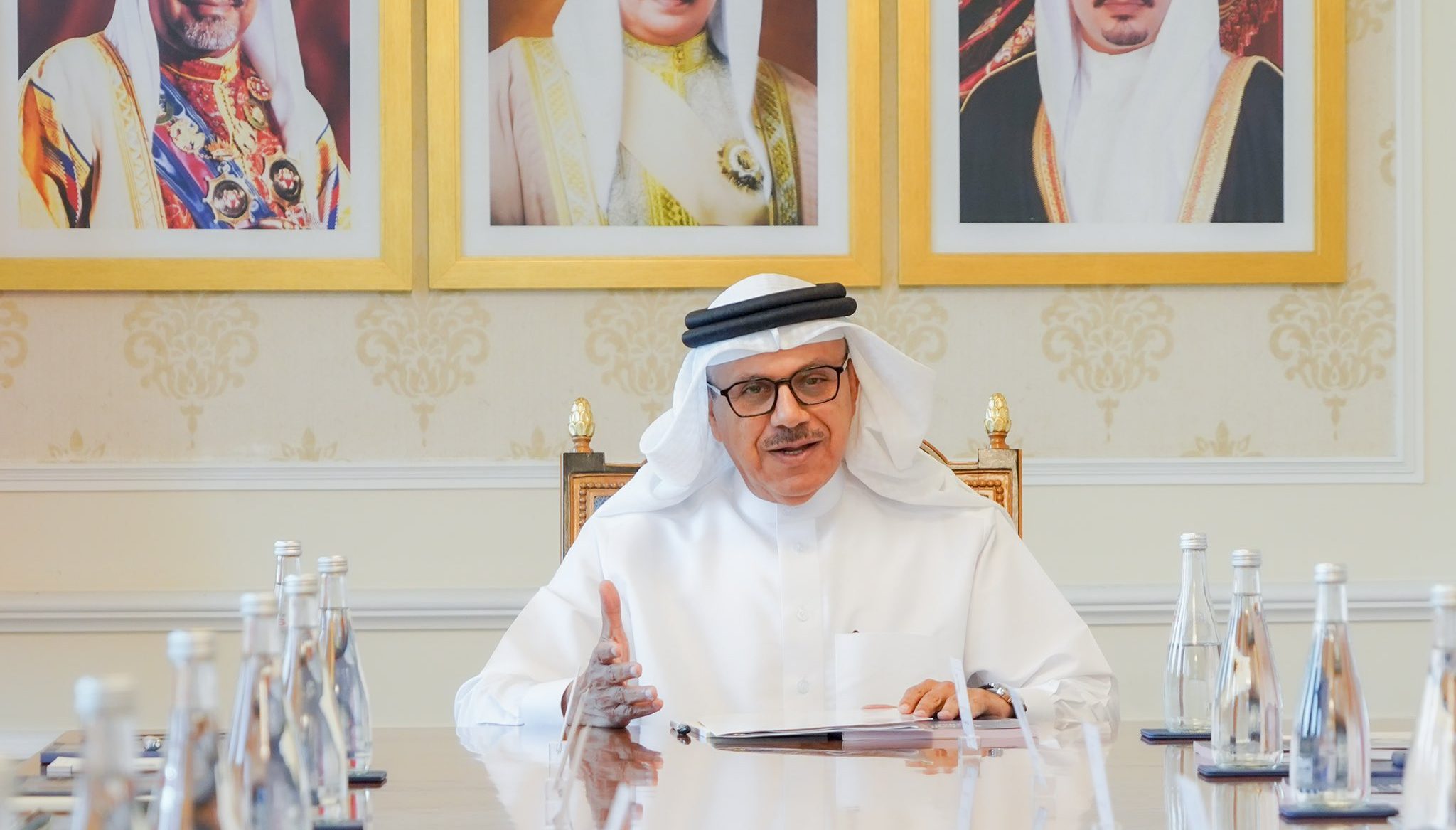Bahrain has always claimed that Qatar has not responded to its invitations to resolve outstanding issues.
Pending matters between Qatar and Bahrain that have remained post the 2017 GCC crisis must “not be left unsettled”, Manama’s Foreign Minister Abdullatif Al-Zayani said on Thursday, just weeks after leaders of the two nations met for the first time in years.
The Bahraini diplomat’s remarks were in response to a question over ties between Doha and Manama in a meeting with the Bahrain News Agency (BNA) and other local news agencies.
Al-Zayani noted that his country had sent invitations “to hold bilateral talks several times to settle the remaining issues”.
“It is unfortunate that the State of Qatar has not responded to the several calls made by the Kingdom of Bahrain to engage so far, stressing Bahrain’s belief in the importance of dialogue and mutual understanding,” said Al-Zayani.
The Bahraini foreign minister added that his country is open for dialogue and mutual understanding under the Al-Ula Declaration.
“[Bahrain] continues to be open for dialogue and mutual understanding in line with the Al-Ula Summit declaration in an attempt to solve pending issues between the two countries such as those related to aviation, and maritime coordination,” he said.
Signed in 2021 between the GCC and Egypt, the declaration marked the end of the 2017 diplomatic rift.
At the time of the crisis, Saudi Arabia, the UAE, Bahrain and Egypt imposed an illegal air, land and sea blockade on Qatar over claims that it supports terrorism. Doha has dismissed those claims as baseless.
While Qatar’s ties with the quartet witnessed significant growth since the signing, rapprochement between Doha and Manama have been slow. Despite the signing of the accord, Qatar and Bahrain embassies have yet to resume operations in both countries.
“There is still major distrust at an intra-GCC level, even if it’s been a year and a half since the Al Ula agreement was signed,” Anna Jacobs, Senior Gulf Analyst at International Crisis Group told Doha News.
“Some bilateral tracks, such as the Saudi-Qatar relationship, are moving forward very well, while others, such as the Qatar and Bahrain relationship, are still very strained,” she added.
‘Media’ invitations
Bahrain has always claimed that Qatar has not responded to its invitations to resolve outstanding issues. In January last year, Manama said it sent Doha an invitation for discussions.
However, the GCC’s Secretary-General Nayef bin Falah Al-Hajraf said in February 2021 that Qatar opted out of responding to the invite as it was sent through the media and not directly to relevant authorities in Doha, as per protocol.
It also came amid several moves by Bahrain that analysts had described as ‘provocative’.
One such move included the seizing of 130 properties reportedly belonging to relatives of Sheikh Tamim. Breaches of Qatar’s territorial waters were also reported both during the crisis and after the signing of the Al-Ula accord.
The latest such breach took place in April, per reports by BNA.
Despite this, hopes over the resumption of ties were raised last month, when Qatar’s Amir Sheikh Tamim bin Hamad Al Thani met with his Bahraini counterpart King Hamad bin Isa Al Khalifa for the first time since the 2017 crisis.
Neither BNA nor Qatar News Agency released further information on the meeting, however, it coincided with Bahrain reportedly removed Qatar from a list of countries that were banned for travel.
Manama abolished a visa requirement for Qataris wishing to enter its lands, allowing them to enter with their ID’s. While the update claimed to be for “all” GCC nationals, it failed to make mention of a U-turn on restrictions specifically targeting Qataris.
Prior to the latest entry policy change, all citizens of the bloc except Qatar were exempt from applying for a visa, per the Bahraini government’s portal—last updated in January.
“These are important symbolic measures, but a more serious bilateral dialogue is needed to address the major points of friction between the two countries,” Jacobs said.
Despite this step in the right direction, there are currently no updates regarding the resumption of direct flights between the two countries.
“The Al Ula agreement called for the full restoration of diplomatic ties between the blockading countries and Qatar, which has taken place between Saudi Arabia and Qatar, but not between Qatar and UAE, or Qatar and Bahrain. No ambassadors have been named by UAE or Bahrain to Qatar at this point, and vice-versa,” Jacobs noted.
“There are still no direct flights between Qatar and Bahrain.”
The four-year long diplomatic rift took a toll on Qatari citizens as well as those from the other neighbouring nations, ripping families apart while disrupting the studies of students in higher education.







